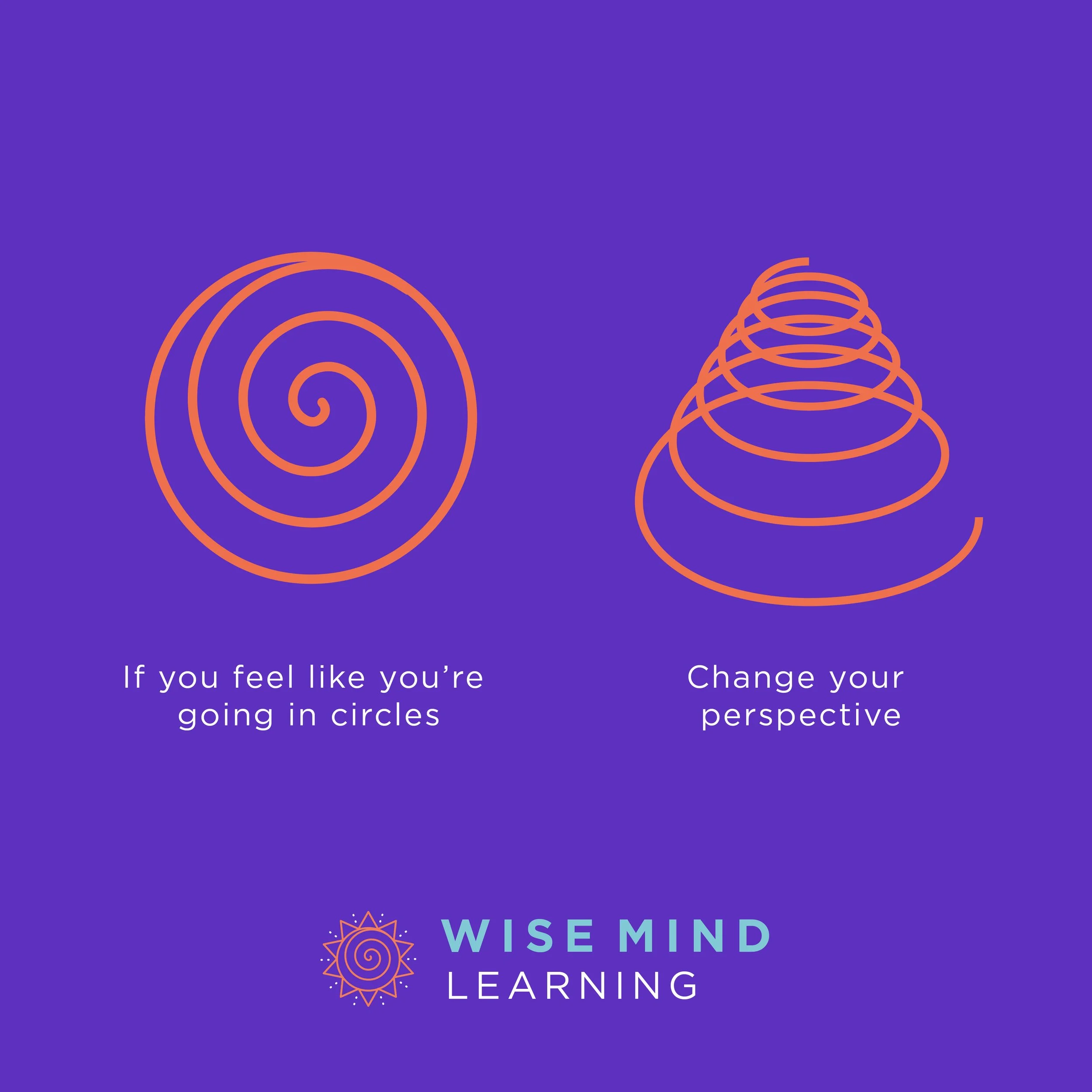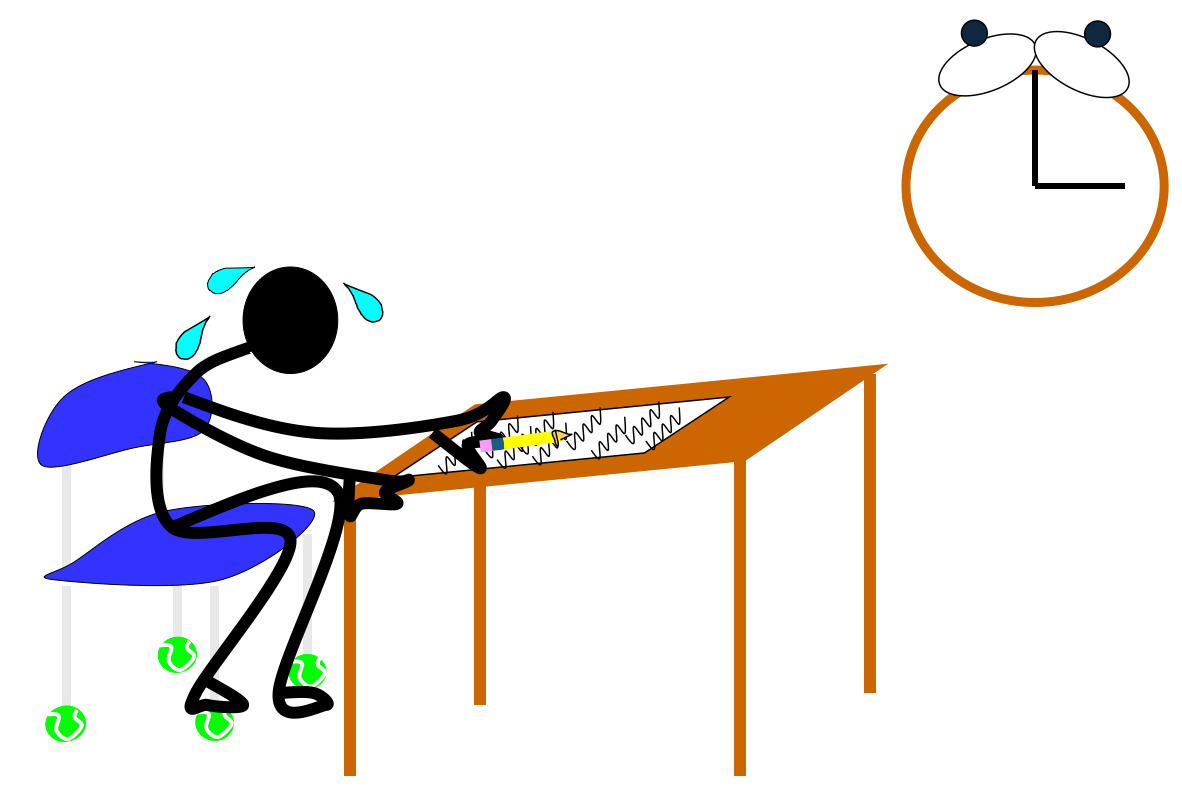Educational Therapy
Real strategies for real learners.
Educational therapy bridges the gap between how you learn and what you're expected to do.
Whether you're in school or long past it, this work is about building the skills and the confidence you need to learn, focus, and follow through in a way that actually works for your brain.
How It Works
This is a strengths-based, learner-centered approach.
Together, we’ll look at…
The unique way your specific brain processes information
Where the breakdowns may be happening (academically or behaviorally)
What tools and strategies work for your unique psychology and background
We might work on:
Reading, writing, and literacy
Executive function
Focus, motivation, and follow-through
Study skills, test-taking, and organization
Managing motivation, procrastination, frustration, avoidance, or anxiety around school or learning

Educational therapy at Wise Mind is not tutoring. We treat the whole learner.
I understand the immense pressure students are under nowadays and am here to help.
These two drawings were done by my own children when they were young.
The student with the books up the hill is my son’s description of how school felt for him. The student struggling to write is how my daughter thought school felt to my son.
Who This is For…
K–12 students navigating learning differences, executive dysfunction, or school stress
College students or young adults working on focus, time management, and independence
Adults returning to school, learning new skills, or needing better systems in daily life
For younger students, I collaborate closely with schools and providers. For adults, we work with whomever you want involved in your support.
Guiding Philosophies
The Tools We Use
We draw from a range of evidence-based modalities, including:
Wilson, Orton-Gillingham, EmPOWER
Visualizing-Verbalizing
Executive function coaching
Self-regulation and metacognitive strategies
Implemented within a therapeutic framework:
CBT, DBT skills, ACT, IFS
Mindfulness and education science

There is hope. My clients are amazing. You are, too.
FAQs
-
The first step is to discuss your concerns with me and to assess whether my expertise and perspective is a good fit for you. All work begins with a brief discovery call and a formal, paid consultation. Please contact me to get started.
-
Educational therapy is a powerful approach that combines psychotherapy and tutoring. At Wise Mind Learning, educational therapy solutions are co-created with learners of all ages (children, adolescents, and adults) who are struggling to achieve their full potential at school, work, or in their lives in general. People who benefit from educational therapy may:
not follow through and complete tasks
have difficulty paying attention at times
have reduced motivation
have anxiety and/or depression
have emotional and/or social stress that is affecting their functioning
voice reduced self-efficacy or low self-concept when it comes to learning
have unique patterns of strengths and weaknesses that may indicate the presence of specific learning disability or an attention deficit/hyperactivity disorder
want to understand themselves better
-
Anyone who struggles with learning in any domain, does not seem to be able to access his or her intellectual resources, is stressed, anxious, or unhappy with how they are progressing towards their goals at school, work, or in life in general, is a good candidate for educational therapy.
-
Yes. I work closely with the school and other collateral providers. Because therapeutic tutoring spans both educational and mental health support/strategies, I often play the role of case manager, to integrate services and supports, and to make them more cohesive and streamlined to benefit the individual learner.
-
We address goals that are meaningful and of value to the individual. If homework provides a vehicle to do that, then we use homework as the context for learning. These decisions are made on a case by case basis, and with the learner.
-
When treatment starts, the first step after establishing a good working relationship, is to set a goal. So, we constantly assess how we are approaching this goal. This assessment can take the form of reflective practice on the part of the learner (e.g., Is my problem becoming smaller? Are my difficulties less problematic?), formal assessments (e.g., questionnaires, surveys, formal tests) and parent-teacher-learner conferences (when applicable and/or appropriate) to hear from all stakeholders about how things are going.
Educational therapy continues as long as the learner has a goal to work towards and would like to do so in the context of a therapeutic relationship with me. Termination of treatment happens based on mutual agreement.
-
I draw from Cognitive Behavioral Therapy (CBT), Dialectical Behavioral Therapy skills (DBT skills), Acceptance Commitment Therapy (ACT), and Internal Family Systems (IFS) to guide individuals towards personalized solutions to alleviate symptoms of anxiety and mood disorders. For AD/HD also, a CBT-based approach is used along with both cognitive and metacognitive strategy instruction. Treatment is anchored in an understanding of development and individual differences, as well as the impact of ecological factors on individual functioning (including culture). I employ a strengths-based, person-centered, relational approach to all my work.
-
Executive function difficulties often arise due to a mismatch between the learners’ skills and developmental level on one hand, and environmental demands on the other. Executive dysfunction may also a symptom of other problems including anxiety and mood disorders, sleep disruption, trauma, and increased stress, to name just a few. To support executive function, I use a multipronged approach including:
Identifying the root cause of the dysfunction and addressing this,
Consulting with school and family to see how best to adjust demands so they are within grasp of the learner, and
Working with the learner to develop personalized strategies for the specific executive skills that are lacking or problematic.
Fostering self-understanding (i.e., metacognition) is a key aspect of this treatment protocol. The learner’s strategies are scaffolded using coaching.
-
Initially, meetings are typically once weekly. As skills and strategies become internalized and generalized, I often draw down the frequency to 1x2weeks based on mutual agreement. Eventually, the treatment frequency is reduced to 1x month, 1x3 months, and finally to an annual check-in as needed. Based on the need and mutual agreement, when I start to work with a minor on a weekly basis, the treatment may also include periodic meetings with parents.
-
Treatment is concluded either when treatment goals are met or by mutual agreement.
-
Yes.
-
This is not unexpected! The first 6-8 meetings are a trial period for you, your child and me to make sure we are a good fit. If your child is not ready for treatment or refuses to work with me, typically I explore that unwillingness in a curious, open, compassionate and nonjudgmental way. If you child is not ready to change or otherwise not open to the work, we will terminate by mutual agreement until treatment can be more effective. Once your child commits to working with me, we worth through any lack of cooperation or motivation during the sessions, as this is part of the treatment. If your child refuses to attend a session due to anxiety or depression symptomatology; addressing that is also part of the treatment.
Readiness for treatment is an important consideration. Therapeutic treatment is about change. When one enters this type of treatment, one moving towards change. Sometimes, individuals are aware of the need for change but not ready to take the step yet. If one is content with the way things are, there is no motivation to change, and no motivation to engage in treatment. This is why it is critical for my work with you and/or your child for us to work towards goals that are of value to the individual.
-
This is something we will discuss as part of the treatment, based on what the goal of treatment is. That said, I introduce myself to children and adolescents as their “consultant”. I acknowledge that they are the experts in their lives and I am an expert in learning, development, self-regulation, and strategies. My role in their lives is to listen to what they have to share, to share what I know and to work together to help them move towards their goals.
-
No. However, upon request I will provide an invoice that you can submit to your insurance. Some families have successfully used their HSA/FSA accounts to pay for my services. Please check with your plan.
-
This is something we can discuss on a case-by-case basis.
-
Information discussed in therapeutic tutoring sessions is privileged and treated as confidential. Confidentially can be breached when there are concerns about safety, to protect the client and the public from serious harm. Disclosures regarding self-harm, and attempts to harm others falls under this clause. This policy is consistent with the ethical guidelines for practice per the National Association of School Psychologists (www.nasponline.org) and the American Psychological Association (www.apa.org).









